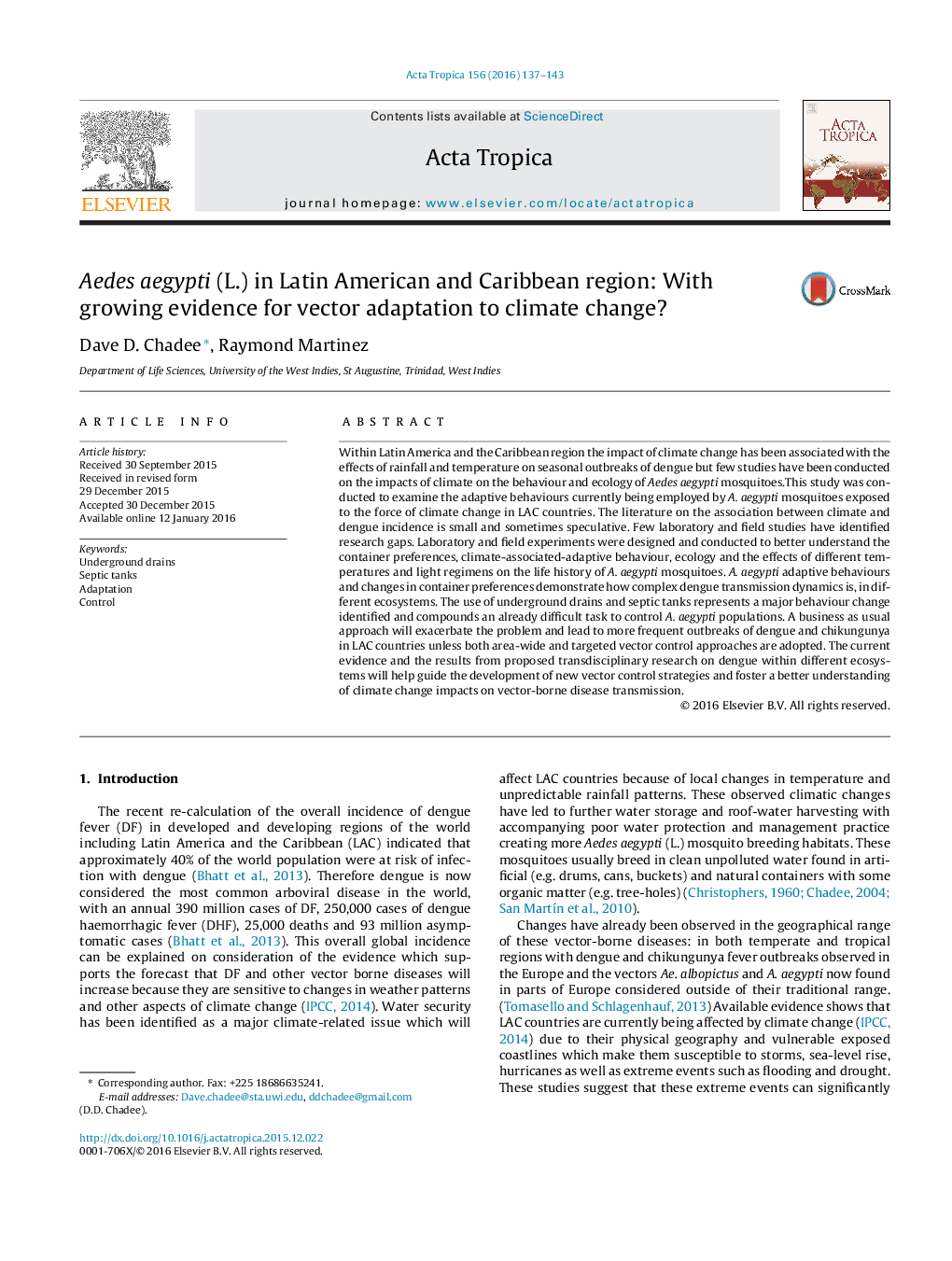| کد مقاله | کد نشریه | سال انتشار | مقاله انگلیسی | نسخه تمام متن |
|---|---|---|---|---|
| 3393755 | 1592768 | 2016 | 7 صفحه PDF | دانلود رایگان |

• An increase in collections of Aedes aegypti immatures from septic tanks and underground drains.
• Results from laboratory and field studies show for the first time high mortality of Aedes aegypti immatures when exposed to sunshine in artificial containers.
• The increase in extreme events including higher than normal temperatures may be responsible for this shift or adoption by mosquitoes to underground breeding sites and resting places.
Within Latin America and the Caribbean region the impact of climate change has been associated with the effects of rainfall and temperature on seasonal outbreaks of dengue but few studies have been conducted on the impacts of climate on the behaviour and ecology of Aedes aegypti mosquitoes.This study was conducted to examine the adaptive behaviours currently being employed by A. aegypti mosquitoes exposed to the force of climate change in LAC countries. The literature on the association between climate and dengue incidence is small and sometimes speculative. Few laboratory and field studies have identified research gaps. Laboratory and field experiments were designed and conducted to better understand the container preferences, climate-associated-adaptive behaviour, ecology and the effects of different temperatures and light regimens on the life history of A. aegypti mosquitoes. A. aegypti adaptive behaviours and changes in container preferences demonstrate how complex dengue transmission dynamics is, in different ecosystems. The use of underground drains and septic tanks represents a major behaviour change identified and compounds an already difficult task to control A. aegypti populations. A business as usual approach will exacerbate the problem and lead to more frequent outbreaks of dengue and chikungunya in LAC countries unless both area-wide and targeted vector control approaches are adopted. The current evidence and the results from proposed transdisciplinary research on dengue within different ecosystems will help guide the development of new vector control strategies and foster a better understanding of climate change impacts on vector-borne disease transmission.
Figure optionsDownload as PowerPoint slide
Journal: Acta Tropica - Volume 156, April 2016, Pages 137–143